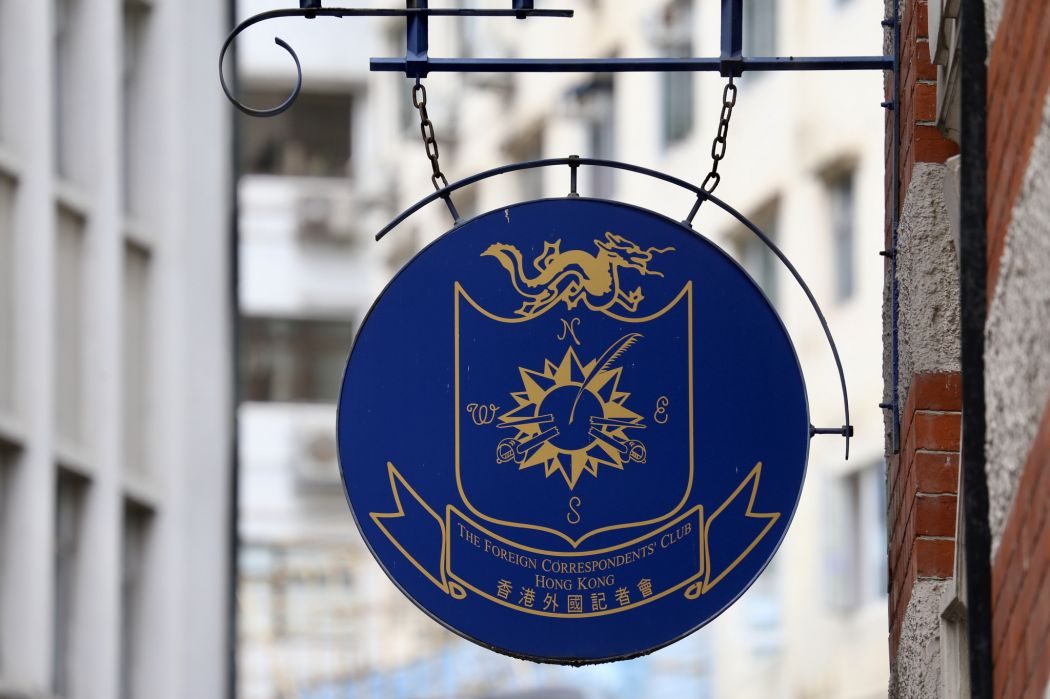Beijing’s foreign affairs office in Hong Kong has accused the Foreign Correspondents’ Club (FCC) of “whitewashing fake journalists,” after the club voiced opposition to a controversial amendment in media accreditation rules by police.
In a statement released on Wednesday, the Commissioner’s Office of China’s Foreign Ministry in Hong Kong told the FCC to stop “meddling” in the city’s affairs under the pretext of press freedom. The office claimed that “anti-China troublemakers” who called themselves journalists deliberately obstructed and even assaulted police during last year’s pro-democracy protests.

“By anxiously whitewashing the fake journalists, FCC Hong Kong is attempting to endorse the rioters and condone their ‘burn with us’ violence, thus sowing more trouble in the city,” the statement read.
It added there was no “absolute press freedom above the law” in Hong Kong, and it was “right and proper” for relevant local authorities strengthen media management: “Any media practitioner in the HKSAR shall strictly and voluntarily abide by national laws applied to Hong Kong.”
The remarks from the Beijing agency came after the FCC criticised the police move to redefine “media representatives” as government-registered and “internationally recognised” media organisations. Under the amended guidelines, press cards issued by local journalist associations would no longer be accepted as valid credentials.

The press club said the new definition would impact accreditation or licensing, leading to a “serious erosion” of the city’s press freedom. The revised policy would also be a “serious blow” to freelance and student journalists, whom the FCC praised as being “integral” to the reporting on the yearlong demonstrations.
“But this is about more than access to events and invitations to the inside of the police cordon. Journalists who are not recognised under this new policy could face the real possibility of arrest for unlawful assembly or rioting,” the FCC wrote.
Secretary for Security John Lee defended the amendment on Wednesday, saying police often spotted people wearing yellow vests or similar “press attire” among crowds at protests. He said some later admitted to police that they were not reporters and officers had found “fake press passes.”
“People who passed themselves off as journalists rendered police unable to effectively carry out their statutory duties,” Lee said.

The security minister said so far 205 organisations have registered with the government news and media information system, including local and international outlets, as well as online media.
Lee cited an official press accreditation system adopted in some places with press freedom, such as New York City and Los Angeles in the US. He said the revised definition would have no impact on the members of the press who work in accordance with the law.
At a press conference on Thursday, eight journalist groups protested again against “government vetting” of the press and demanded police scrap the new guidelines immediately.

The unions and associations gave examples of police disrupting or obstructing journalists at work, including kettling them. Some media representatives also cited an incident in May, where officers told reporters to kneel and stop filming and pepper-sprayed them during a demonstration in Mong Kok. Police chief Chris Tang later admitted treatment of the press that night was “undesirable.”
Chris Yeung, chairman of the Hong Kong Journalists Association expressed concern over the police stating that officers would only facilitate reporters’ work when it does not affect the force’s “operational efficiency.”
“We are worried that police are trying to rationalise acts that obstruct reporters… the whole purpose of the amendment shows police see the media and reporters as their enemies,” he said.
